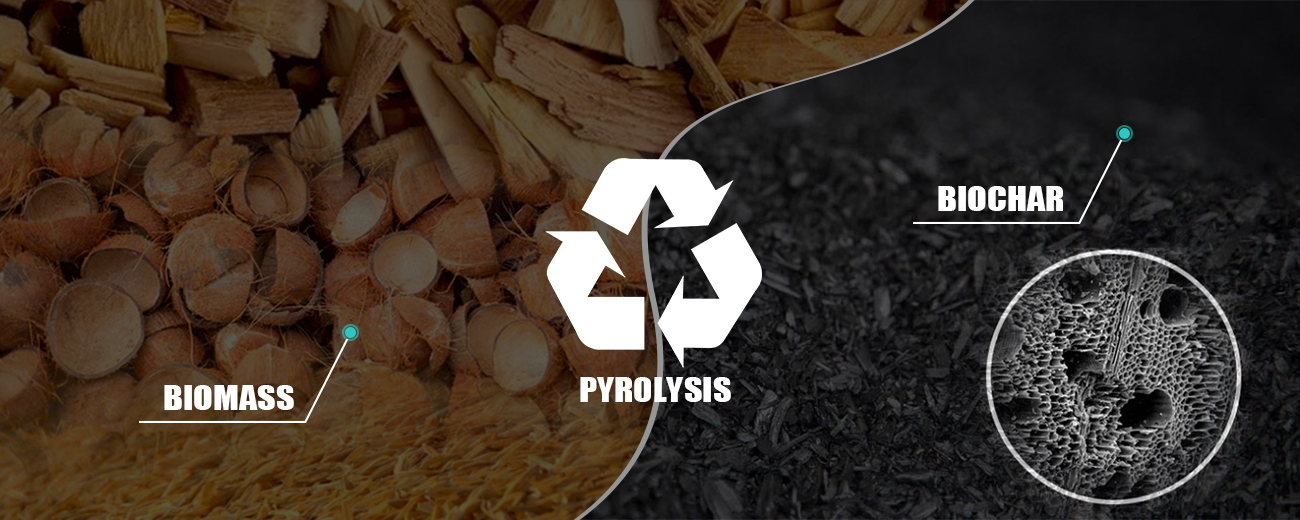Biochar and Carbon Sequestration: A Climate Game Changer
Climate change remains one of the most pressing challenges of the 21st century. Rising global temperatures, melting ice caps, and increasingly unpredictable weather patterns underscore the urgent need for sustainable strategies to curb greenhouse gas emissions. While renewable energy and conservation efforts are essential, another lesser-known but powerful solution is gaining attention: biochar.
What is Biochar?
Biochar is a stable, carbon-rich material produced through the pyrolysis of organic biomass in a low-oxygen environment. Unlike conventional combustion, pyrolysis prevents complete burning, allowing carbon to remain locked in solid form. When incorporated into soil, biochar not only improves fertility and water retention but also serves as a long-term carbon sink, effectively sequestering carbon for hundreds to thousands of years.

The Role of Biochar in Carbon Sequestration
Carbon sequestration through biochar production offers a dual benefit: reducing atmospheric carbon dioxide while enhancing soil health. The process begins with the conversion of agricultural and forestry waste into charcoal. The resulting biochar is then added to soil, where it resists decomposition and holds carbon in a stable form. This method mimics natural carbon cycles observed in forest fires, but in a controlled and sustainable manner.
Modern technologies have made it feasible to process various biomass sources into biochar. For instance, equipment like the palm kernel shell charcoal machine enables efficient conversion of palm waste into valuable biochar. Such advancements make it possible to scale operations and integrate carbon sequestration into broader climate mitigation strategies.
Biochar’s Agricultural Benefits
Beyond its climate impact, biochar has notable advantages for agriculture. Its porous structure helps retain nutrients and water, making it particularly useful in arid regions or areas with poor soil quality. Farmers who incorporate biochar often report higher crop yields, reduced need for chemical fertilizers, and improved resilience against drought and pests.
Different types of biomass produce varying types of biochar, each with unique properties. For example, the straw charcoal machine transforms crop residues into a form of biochar rich in potassium and other plant-friendly elements. This application closes the loop in agricultural cycles, turning waste into a resource.
Sustainable Waste Management Through Pyrolysis
The pyrolysis process not only creates biochar but also contributes to sustainable waste management. Agricultural by-products, forestry residues, and even municipal organic waste can be transformed rather than discarded. This reduces methane emissions from decomposing biomass and diverts waste from landfills.
For example, forestry waste like bamboo can be processed using a bamboo charcoal making machine, producing high-quality biochar while preventing the environmental degradation associated with unmanaged biomass disposal. This method is particularly beneficial in regions with abundant bamboo growth, turning a potential waste issue into an ecological solution.

Economic Opportunities in the Biochar Sector
As awareness of biochar grows, so do opportunities for green entrepreneurship and investment. Startups and established companies alike are exploring ways to commercialize biochar production and its by-products. This includes selling biochar as a soil amendment, developing carbon credit schemes, and providing technical services to agricultural communities.
One leading player in this industry is Beston Group Co., Ltd., a company specializing in sustainable pyrolysis equipment. Their solutions are designed for a range of biomass types and applications, offering scalable models that can serve both rural farmers and large-scale industrial clients. By enabling localized production, they help reduce transportation emissions and encourage regional economic development.
Biochar in Global Climate Policy
Governments and international organizations are beginning to recognize biochar’s potential in their environmental agendas. Some countries have included biochar projects in their Nationally Determined Contributions (NDCs) under the Paris Agreement. Furthermore, the emerging carbon market is starting to value biochar-based offsets due to their permanence and co-benefits.
However, policy support remains inconsistent. Greater investment in research, incentives for sustainable land use, and clear regulatory frameworks are needed to fully integrate biochar into global carbon reduction strategies. With the right support, biochar can play a significant role in helping nations meet their climate targets.
A Holistic Approach to Climate Mitigation
As the world searches for ways to stabilize the climate, solutions like biochar remind us that nature-based approaches can be both powerful and practical. By converting waste into a climate-positive resource, biochar bridges the gap between environmental restoration and economic development.
Whether through a palm kernel shell charcoal machine in Southeast Asia, a straw charcoal machine on a European farm, or a bamboo charcoal making machine in African forests, the potential of biochar is global. With companies like Beston Group Co., Ltd. leading the way, a carbon-neutral future may not be as far off as it seems.